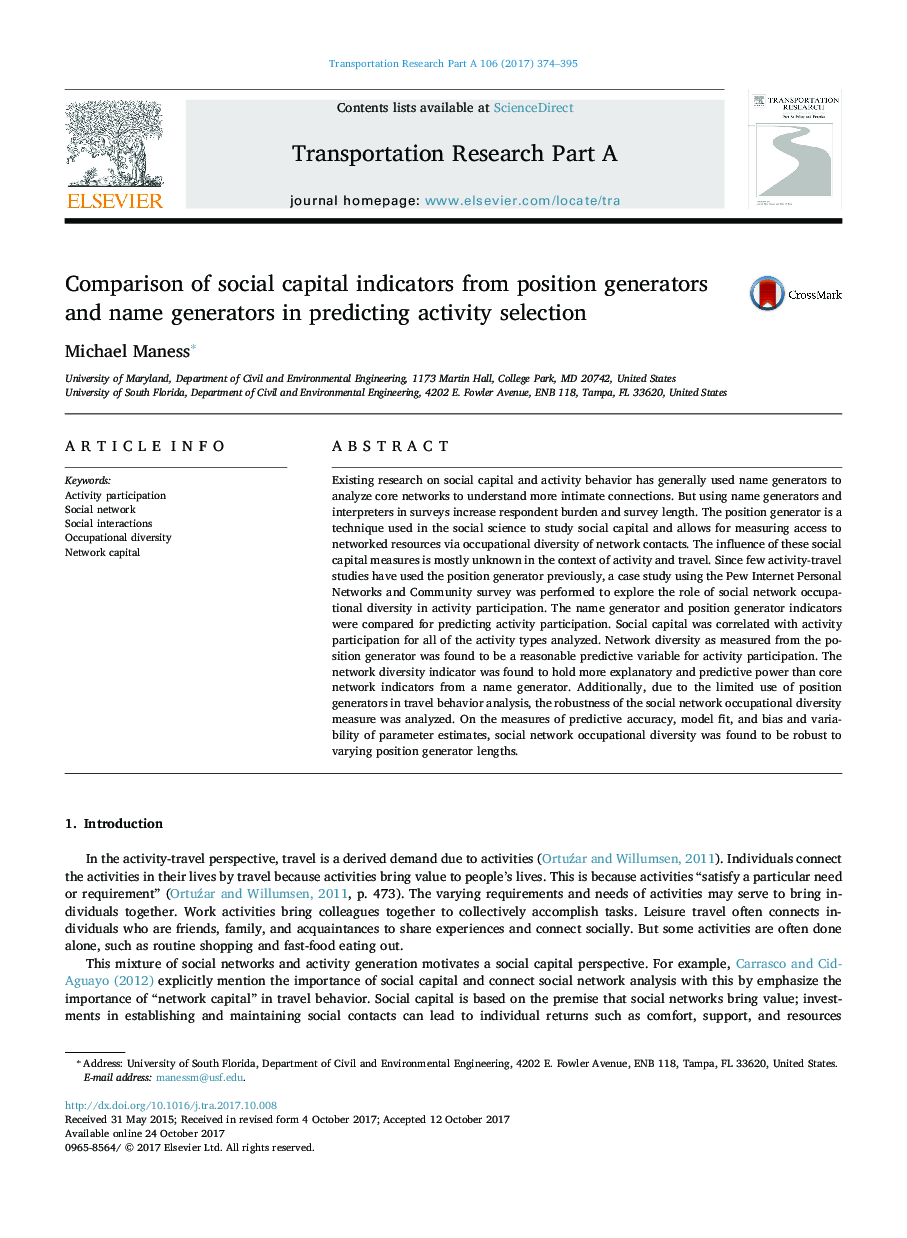| Article ID | Journal | Published Year | Pages | File Type |
|---|---|---|---|---|
| 6780650 | Transportation Research Part A: Policy and Practice | 2017 | 22 Pages |
Abstract
Existing research on social capital and activity behavior has generally used name generators to analyze core networks to understand more intimate connections. But using name generators and interpreters in surveys increase respondent burden and survey length. The position generator is a technique used in the social science to study social capital and allows for measuring access to networked resources via occupational diversity of network contacts. The influence of these social capital measures is mostly unknown in the context of activity and travel. Since few activity-travel studies have used the position generator previously, a case study using the Pew Internet Personal Networks and Community survey was performed to explore the role of social network occupational diversity in activity participation. The name generator and position generator indicators were compared for predicting activity participation. Social capital was correlated with activity participation for all of the activity types analyzed. Network diversity as measured from the position generator was found to be a reasonable predictive variable for activity participation. The network diversity indicator was found to hold more explanatory and predictive power than core network indicators from a name generator. Additionally, due to the limited use of position generators in travel behavior analysis, the robustness of the social network occupational diversity measure was analyzed. On the measures of predictive accuracy, model fit, and bias and variability of parameter estimates, social network occupational diversity was found to be robust to varying position generator lengths.
Related Topics
Physical Sciences and Engineering
Engineering
Civil and Structural Engineering
Authors
Michael Maness,
